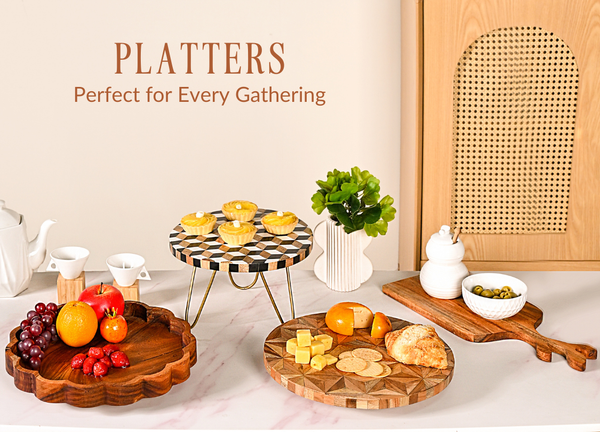We all cook.
Everyone, to some extent, is a cook. Whether we are master chefs who like to indulge in lavish meals or novices, at some point in our lives we will need to cook for ourselves and others. And as a result, we need quality kitchenware.

Seasoned pros will all feel the need to invest in expensive cookware and bakeware. However, what if you’re someone whose speciality is Kraft mac and cheese or maggi? How do you know what to buy? And with all the misconceptions and differences of opinion, choosing the right kitchenware can be even more complicated. So again, how do you know what cookware to buy? Before you begin to fret, we’re debunking it all for you.
Expensive Equals Better Quality
We often think that the higher the price point, the better the product must be, right? Whether it’s bags and accessories, home decor items, or even cooking pots and baking trays, we think that the higher prices must mean better quality or more benefits. However, the reality is that most expensive kitchenware items are a result of marketing and branding, and, as a result, don’t necessarily translate into quality, durable cookware.
While pretty cookware, baking trays, and baking dishes do make the entire experience a lot more whimsy, it doesn’t mean you need to break the bank just to produce food that will taste the same in cheaper options. Whether it’s glass, ceramic, or cast iron you need to ensure that your cooking pots and bakeware are sturdy and made of a material that best suits your needs.
Nonstick Coatings Are Unsafe:
There’s no denying that nonstick cooking pots are practically our best friends in the kitchen. They release food easily from the pan, which means we can always end up with visually aesthetic food. It’s easy to clean, which is always a plus point in our kitchen. But, more importantly, it allows people to control their fat intake as they can easily cook meals with minimal amounts of oil.
However, despite these many advantages, many still believe that nonstick coatings are unsafe and can turn out to be life-threatening if ingested. And we’re here to tell you that this, in fact, is nothing but a myth. Nonstick cookware and kitchen tools are non-reactive with food, with most companies using non-teflon coatings to protect their products.
All Kitchen Tools Are Created Equally
The notion that all kitchen gadgets are made equally is baseless. There can be significant variations ranging from materials and functionality to design and ergonomics, but every kitchen tool is made differently in terms of its usefulness, durability, or performance.
More Features Means Better Performance
Have you ever looked at something and thought “wow, that looks cool…but how on earth do I begin to use it?!”
In the world of cooking, more features doesn’t always equate to better performance of our kitchen tools. While additional features can certainly enhance our efficiency and convenience, they can also complicate things unnecessarily. You see dear reader, the key to making cooking feel therapeutic rather than a frantic chore lies in its simplicity. Kitchen tools need to be high-quality, durable, and easy to use, and as a result, simpler designs with essential features can outperform a more feature-rich but cumbersome tool. Therefore, it’s crucial to be practical rather than fashionable.
All Brands Offer the Same Quality
Another misconception that people carry is the fact that all brands offer the same quality for the same product. Unfortunately, that’s simply not true! Reputable brands pour tons of money, time, and effort into hardcore research and development to maintain a positive reputation and customer satisfaction. Lesser known brands often cut corners to cut costs. As a result, you end up with subpar kitchenware made from lower-quality materials that are poorly constructed.
Kitchenware Doesn't Need Maintenance
Contrary to the notion that kitchenware doesn't need maintenance, proper care is crucial for ensuring the longevity and performance of kitchen tools and utensils. Different materials, such as knives, pots, and pans, require specific care routines. For example, knives may need regular sharpening, and certain cookware, such as cast iron pots, may require seasoning or careful cleaning to prevent damage. By neglecting their maintenance, your pots and pans can deteriorate and lose their functionality.
The Bottom Line:
While investing in good quality kitchenware is a must, your ultimate goal should be to experience convenience, efficiency, and, above all, durability. While the above myths have been followed for decades, certain brands have leveraged the advancement of technology to offer products that enhance functionality without resulting in significant health measures and compromising our environment.
























